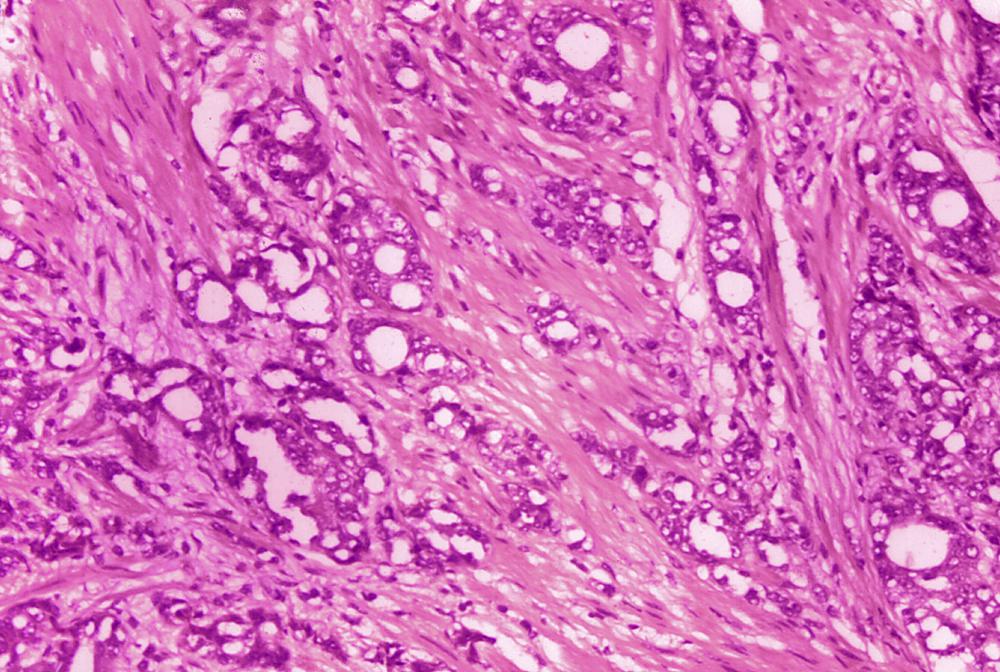

A new study has found that statin use among patients with heart failure is associated with a 16 per cent lower risk of developing cancer compared with non-statin users.
The findings of the study were published in the European Heart Journal.
In addition, the study found that statin use was associated with a 26 per cent reduced risk of dying from cancer over the same period.
Previous research has shown that heart failure patients are at increased risk of developing cancer, possibly because heart failure may be a cancer-causing condition via shared pathways such as inflammation or genetic factors.
However, there has been very little study of the associations between statin use and the risk of developing and dying from cancer in patients with heart failure. The current observational study of over 87,000 people in Hong Kong is the largest study to investigate this and the authors believe their findings can be extrapolated to other populations.
The study also found that the longer people with heart failure took statins, the greater the reduction in their risk of developing cancer.
Compared with taking statins for between three months and two years and after adjusting for factors that could affect the results such as age, sex, smoking, alcohol consumption and other health problems, if patients remained on statins for four and six years, their risk reduced by 18 per cent and if they took them for six or more years the risk reduced by 22 per cent.
Similarly, the risk of dying from cancer reduced by 33 per cent and 39 per cent if patients remained on statins for four to six years and for six or more years respectively, compared to patients who took them for between three months and two years.
Dr Kai-Hang Yiu, from The University of Hong Kong, who led the study, said: “Ten years after starting statins, deaths from cancer were 3.8 per cent among heart failure patients taking statins and 5.2 per cent among non-users – a reduction in the absolute risk of death of 1.4 per cent. The reduction in the absolute risk of developing cancer after six years on statins was 22 per cent lower compared to those who received only between three months and two years of statins.”
In collaboration with Professor Carolyn Lam, from National Heart Center, Singapore, and other researchers, Dr Yiu analysed data from 87,102 patients in Hong Kong who were admitted to hospital with heart failure between 2003 and 2015. Patients were followed up until they were diagnosed with cancer, died or until the end of 2018, whichever came earlier. Patients were excluded from the study if they had a history of cancer or were diagnosed or died from it within 90 days of the first diagnosis of heart failure, if they had HIV, or if they had taken statins for fewer than 90 days. This left 36,176 statin users and 50,926 statin non-users for analysis.
A total of 3,863 (4.4 per cent) of patients died from cancer during the follow-up and the commonest types of cancer were bowel, stomach, lung, liver and biliary (liver) system.
The researchers also found that deaths from any cause was lower among statin users compared to non-users: at ten years, 60.5 per cent (21,886) statin users had died and 78.8 per cent (40,130) non-statin users had died, meaning that statin use was associated with a 38 per cent reduction in deaths from any cause compared to non-users.
The researchers say that advances in the treatment of heart failure, which saw a two-fold improvement in five-year survival rates from 29 per cent to 60 per cent between 1970 and 2009, have been offset by an increase in deaths from other causes, particularly cancer, among heart failure patients.
Dr Yiu said, “Heart failure is a growing disease globally and deaths due to other causes unrelated to the heart and blood vessels are of concern. Our findings should raise doctors’ awareness of the increasing cancer incidence among heart failure patients and encourage them to pay extra attention to non-cardiovascular-related outcomes. Moreover, our study highlights the relationship between heart failure and cancer development, and provides important information regarding the possibility of reducing cancer incidence and related deaths by using statins in these patients.”
“Randomised trials should be carried out to investigate this further. In addition, the findings, combined with previous research showing the strong association between heart failure and cancer, call for potential strategies to reduce the risk of cancer, such as screening for cancer in heart failure patients,” Dr Yiu added.
Strengths of the study include its size, the use of data from a territory-wide, well-validated electronic healthcare database, and the adjustment for factors that could affect the results, including the use of drugs such as metformin and aspirin that are known to protect against cancer.
Limitations include the fact that this is an observational non-randomised study which means it can only show an association between statins and lower cancer risk and not that the statins cause the reduction in risk; information on factors that could affect the risk of cancer, such as family history, was not available; there might be other factors that could affect the findings that were not included in the analyses; and there was no information on how well the heart’s left ventricle was performing and so it was not possible to evaluate the potential protective effects of statin use on left ventricular ejection fraction.